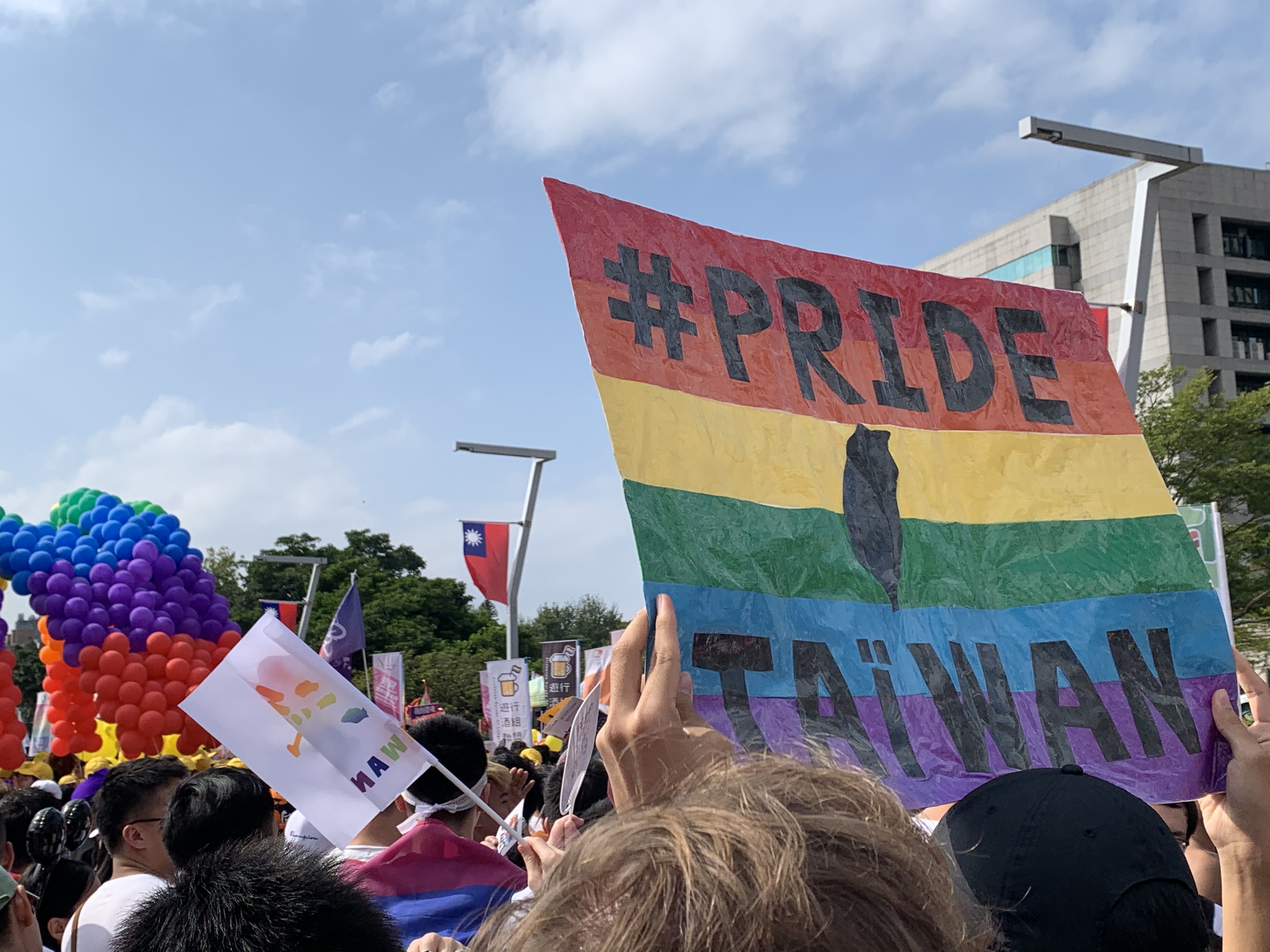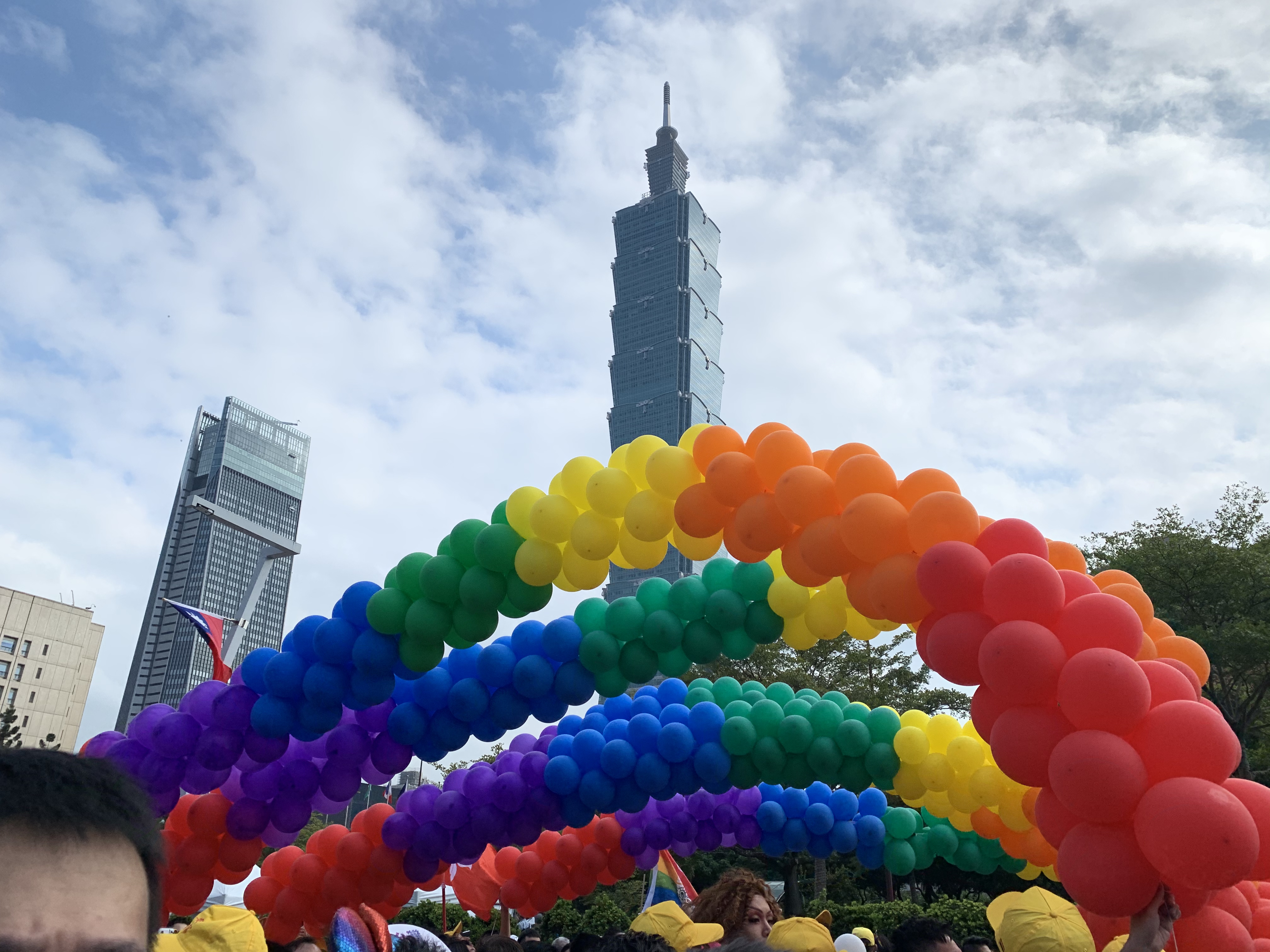
This year's Taipei Pride, held earlier today - and the parties are surely still going on - merits so many "that's what she said" descriptors, I don't even know where to begin. It was massive. Huge. So very long. It just kept coming. By the end, my legs were practically falling off.
Basically, it was exactly what you'd expect for the first Pride after legalization of same-sex marriage in Taiwan, the first Asian country to do so.
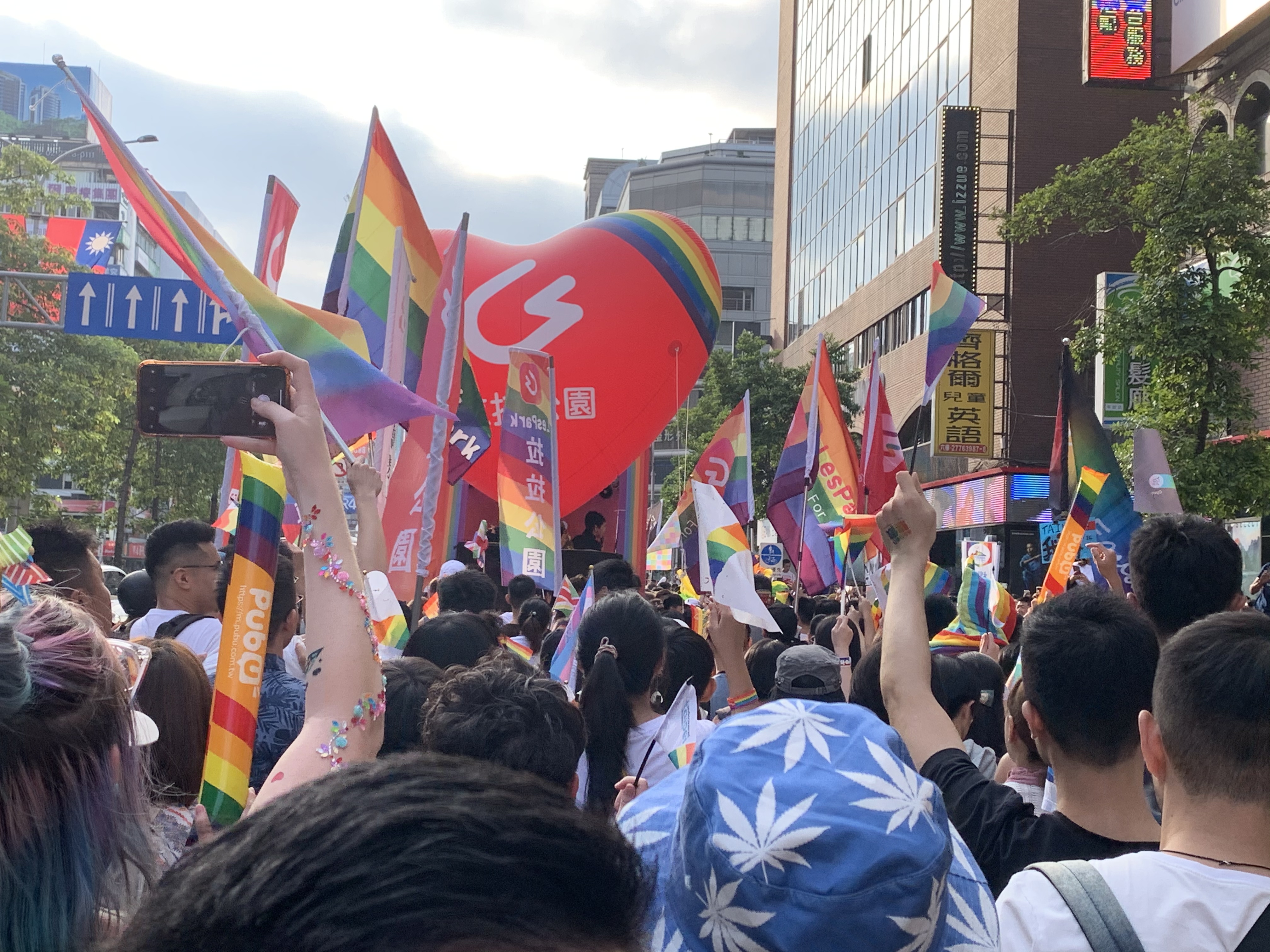
I have no idea exactly how big the parade was other than that it was the biggest Taiwan, and therefore Asia, has ever seen (Taipei Pride is the biggest LGBT event in the continent). I found it hard to estimate in part because the usual starting point and route of the parade changed from the Jingfu Gate circle and general 228 Park area to City Hall square - that big esplanade where Ren'ai Road ends - for reasons I'm not sure of. The News Lens puts the total conservatively, I think, at 170,000. New Bloom is perhaps a tad overgenerous with 350,000. All I can say is that I stopped walking and took up a permanent spot thinking the whole parade would pass me in about 20 minutes. Two hours later, it was still going.

It was big enough to make the front page of the BBC (to be honest, though, Taipei Pride usually does. And, of course, BBC had to add the stupid language about China and Taiwan, as though China is at all relevant to Taipei Pride (it isn't.) I won't even bother to quote it here.
All the usual corporate sponsors were there - something I don't love, but in an Asian context, also don't hate. Not because it signals that they don't (or don't intend to) discriminate against LGBT workers, job applicants and clients - that should be a given - but because the older generation which is less open to LGBT equality and rights won't necessary listen to their kids and grandkids: the young, liberal participants. But hoo boy, if they learn that the Taiwan branch of some fancy company (and therefore that company's CEO or branch office's General Manager, who is likely to be older and more like them) supports those things, they may be more likely to reconsider.

LGBT-friendly churches were in attendance as well, a reminder that while most Christian organizations in Taiwan are anti-gay, we can't judge anyone before we get to know them.

What really struck me, though, was how much more political this year's Pride was. I mean, Taipei Pride has always had that legacy, acting as it does to offer a beacon of hope to the region that, as President Tsai put it, "progressive ideals may take root in an East Asian society". It's quite typical that people from around Asia and the world come to Taiwan to celebrate Pride here because they simply cannot do so in their own countries, and this year was no exception. What's more, young supporters of political causes, including Taiwanese de jure independence, have typically also been supportive of LGBT causes (older Taiwan independence supporters...not so much).
But this year there was a very strong undercurrent of support for the Hong Kong protesters, mockery of repressive China, and more open support of Taiwanese identity. Other flags and signs supporting Tibet and Xinjiang could also be seen.
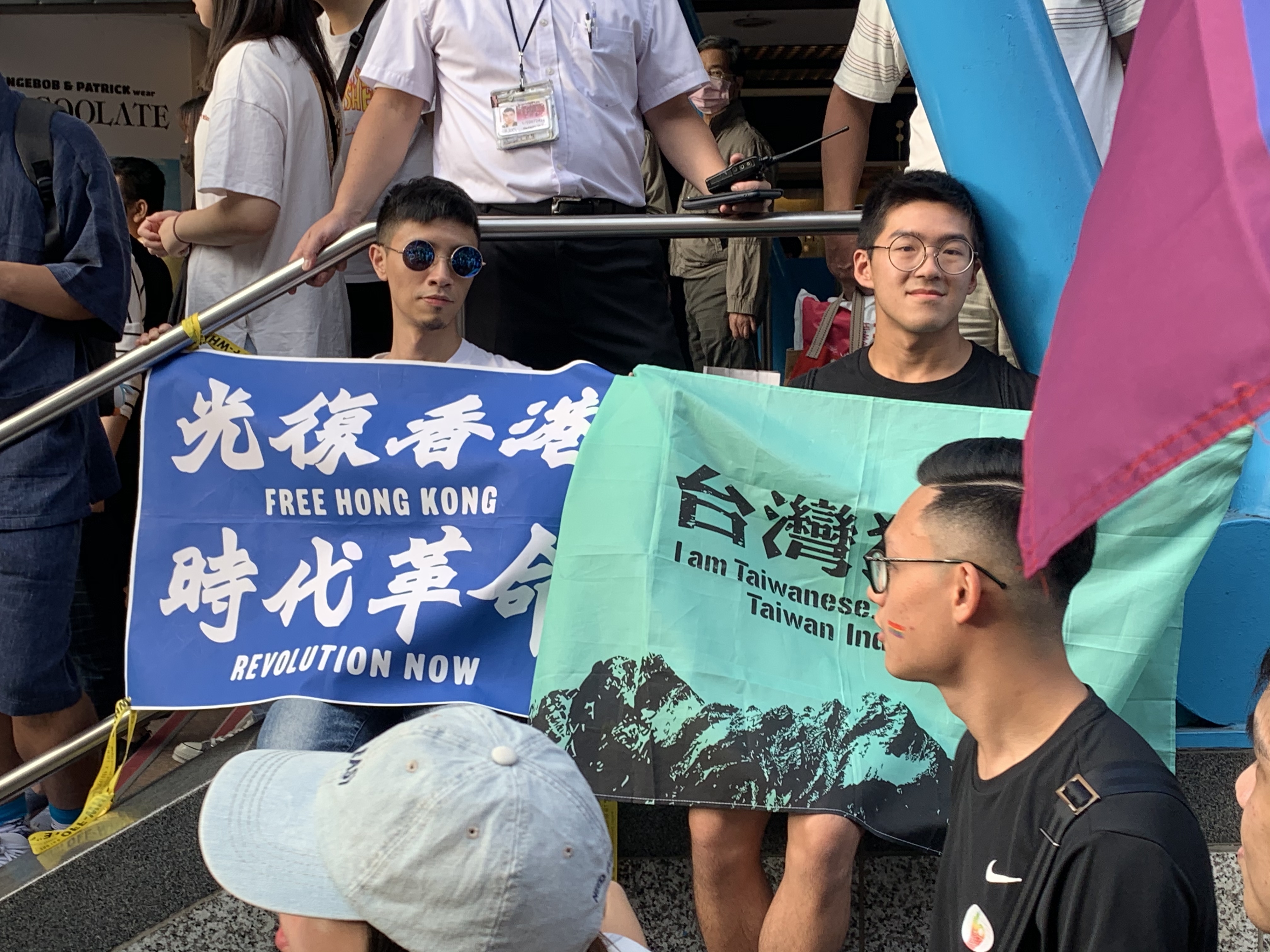
If, by the way, you're pro-LGBT but were still thinking that you could support any candidate in the Taiwanese 2020 elections and it wouldn't matter, think again. It's quite clear not only from the candidates' own messaging but the overall attitude at Pride that if you're not heteronormative, Han Kuo-yu is not the guy for you. Tsai Ing-wen's administration on the other hand, while not perfect, is your best bet (yeah, I needed help to understand this, my Taiwanese sucks).
International organizations that have a presence in Asia such as Amnesty International and Greenpeace were also present - with some participants flying in from abroad to march with their organization's banner.
This was cast in stark relief by one sign in particular:
Homonationalism is an ideology that uses liberal, often pro-LGBT positions as a means to discriminate against immigrants from more "conservative" societies, saying that they bring their anti-LGBT (or illiberal) values with them, so we're in trouble if we let too many of them in. Or, more generally, it's just used as an excuse for prejudice and discrimination in societies where things like marriage equality are now taken as normal and may be supported even by members of the right wing, but xenophobia remains a problem.
And yes, perhaps you'll meet immigrants who live up to the "their values are not like ours" stereotype - nevermind that our values weren't much different just a few years or decades ago - but the fact that Taipei Pride is a massive welcome party for marginalized groups across Asia from these "conservative" societies - shows that one cannot assume liberalism or illiberalism simply by national origin.


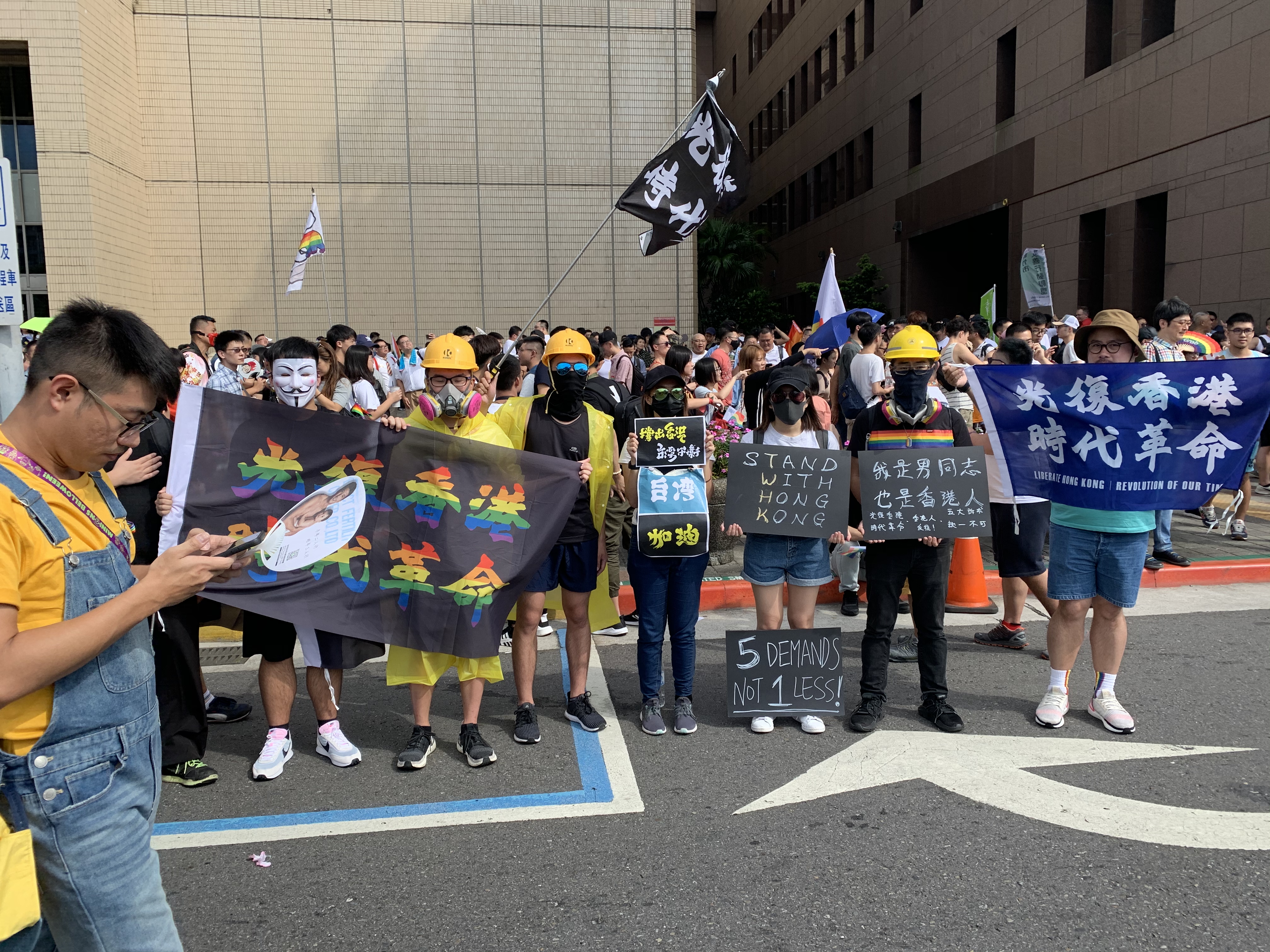
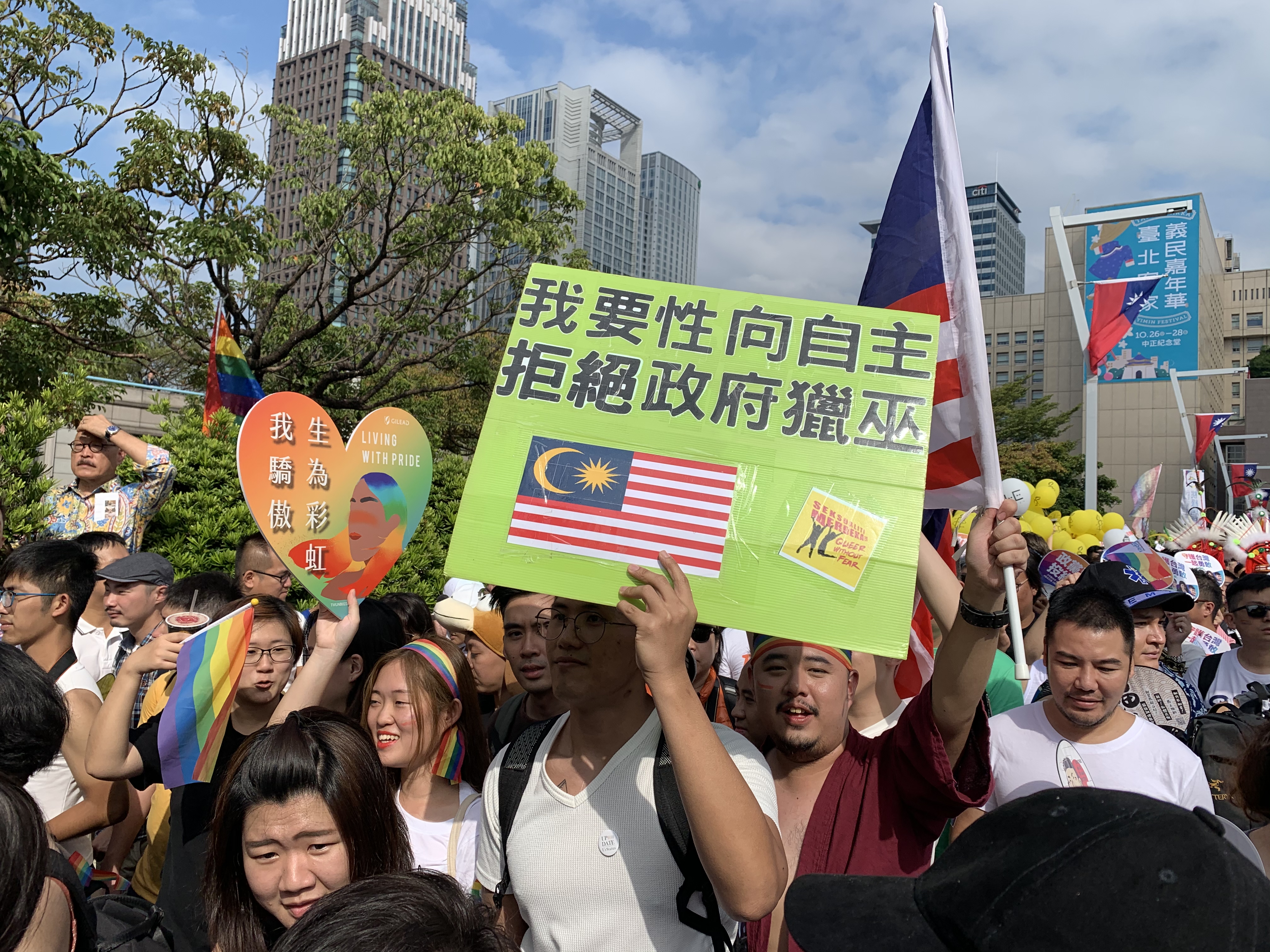

Of course, the usual bevy of left-leaning political parties showed up, including the much reduced and humbled New Power Party (with a few flags), the Green Party, the State-building Party (with their own truck, spouting very serious political messages) and I assume others. I'm not sure at all if the NPP being on more equal footing representation-wise with these smaller parties is a good thing or not - none of them are currently strong contenders to take down the DPP/KMT two-party vortex, but then it never quite felt fair before that the NPP got all the thunder, y'know?

This year also felt more sexually diverse than previous years - with huge bisexual, transgender and asexual flags in addition to the usual rainbow.




My own visit to Pride was cut short in part because the route was just so slow, especially before it reached Zhongxiao Dunhua, where things sped up a little bit. I was stuck in a mass of people at City Hall well past the 1:30pm departure time, and by 3pm we hadn't even made it past Sun Yat-sen Memorial Hall yet, with several very long waits. This was due at least in part to how little space the parade was allocated. I remember previous demonstrations in this part of Taipei taking up all of Zhongxiao Road or all of Ren-ai Road, or at least one full half of it, but Pride got just one or two lanes, with several close calls (including people trying to speed up a bit walking on the outer edge of the march, quite close to traffic). Some marchers got stuck trying to use the fenced-off walkway by the Taipei

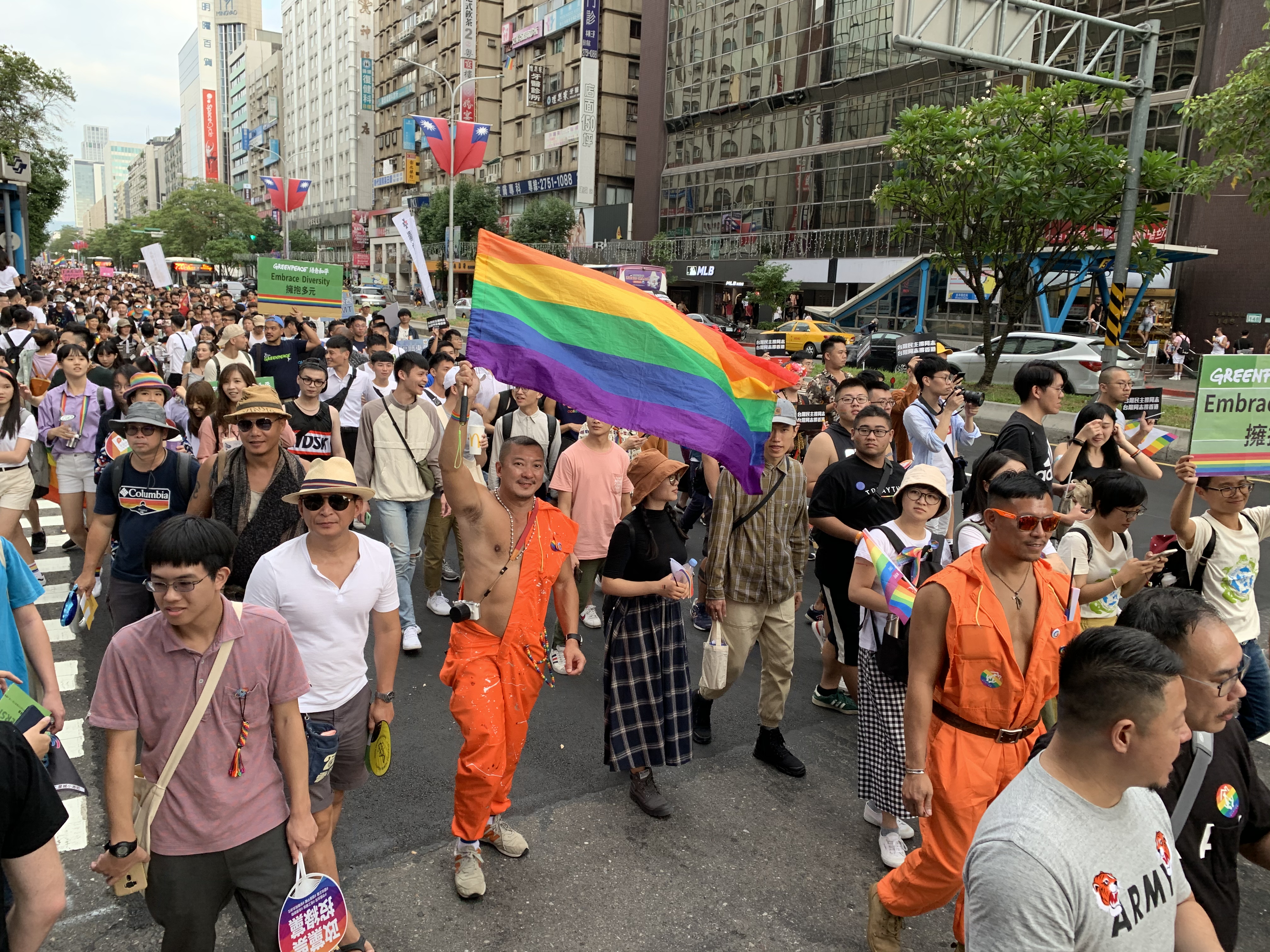

I could try to assign blame for this poor planning but we don't really know...oh whatever, let's go for it. Maybe it'll become clearer in a few weeks but right now, it sure looks like the authorities are just less willing to give space to Pride and that could be in part due to homophobia. After all, one aspect of homophobia is reducing the 'space' in which LGBT people may exist, and in today's case, that felt literally true.
But let's not assign blame to every member of law enforcement. Several traffic cops I saw today were wearing small but noticeable rainbow items in a show of support, and the police I saw here and there looked friendly and relaxed, not serious or unsupportive.
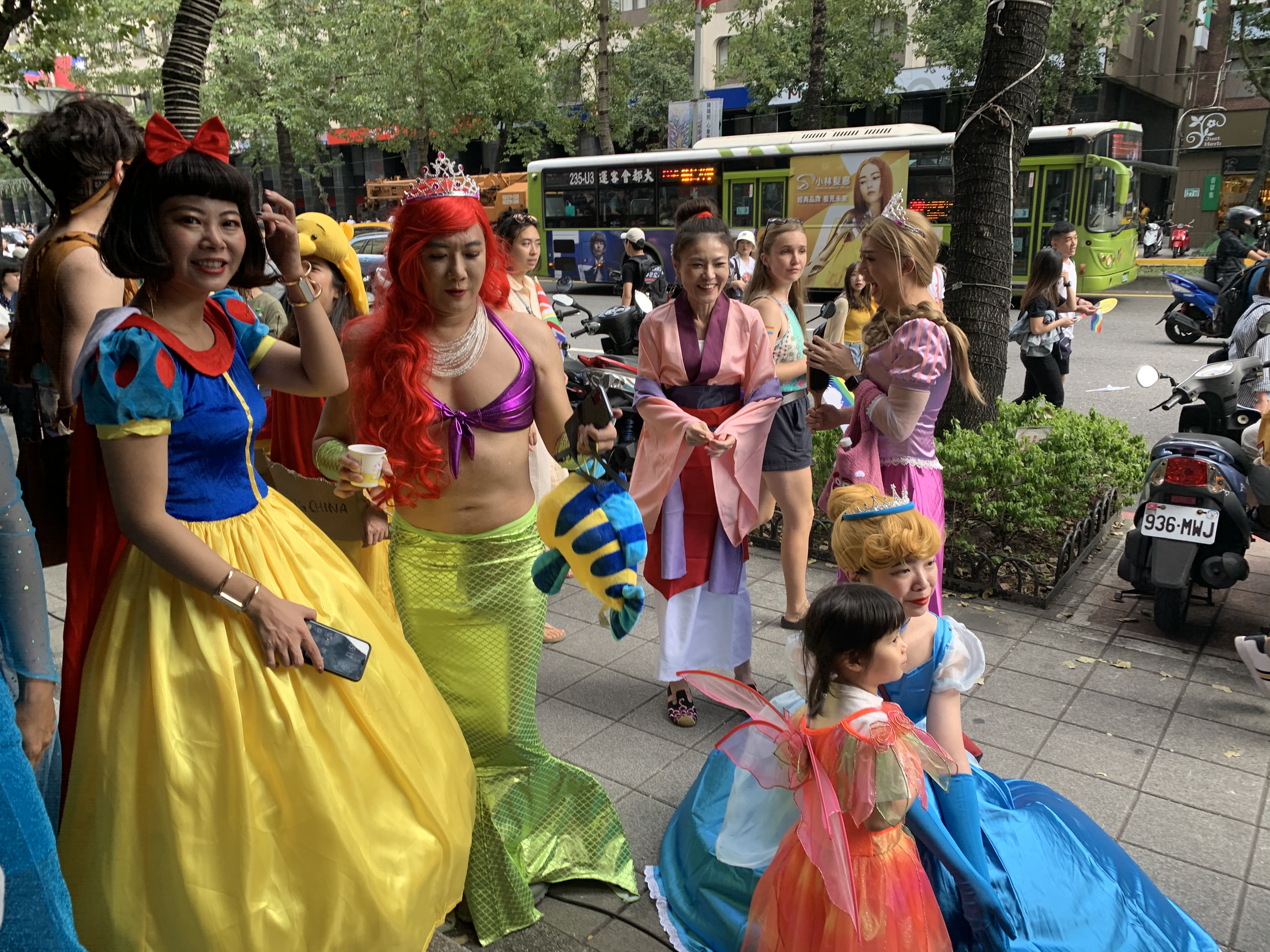
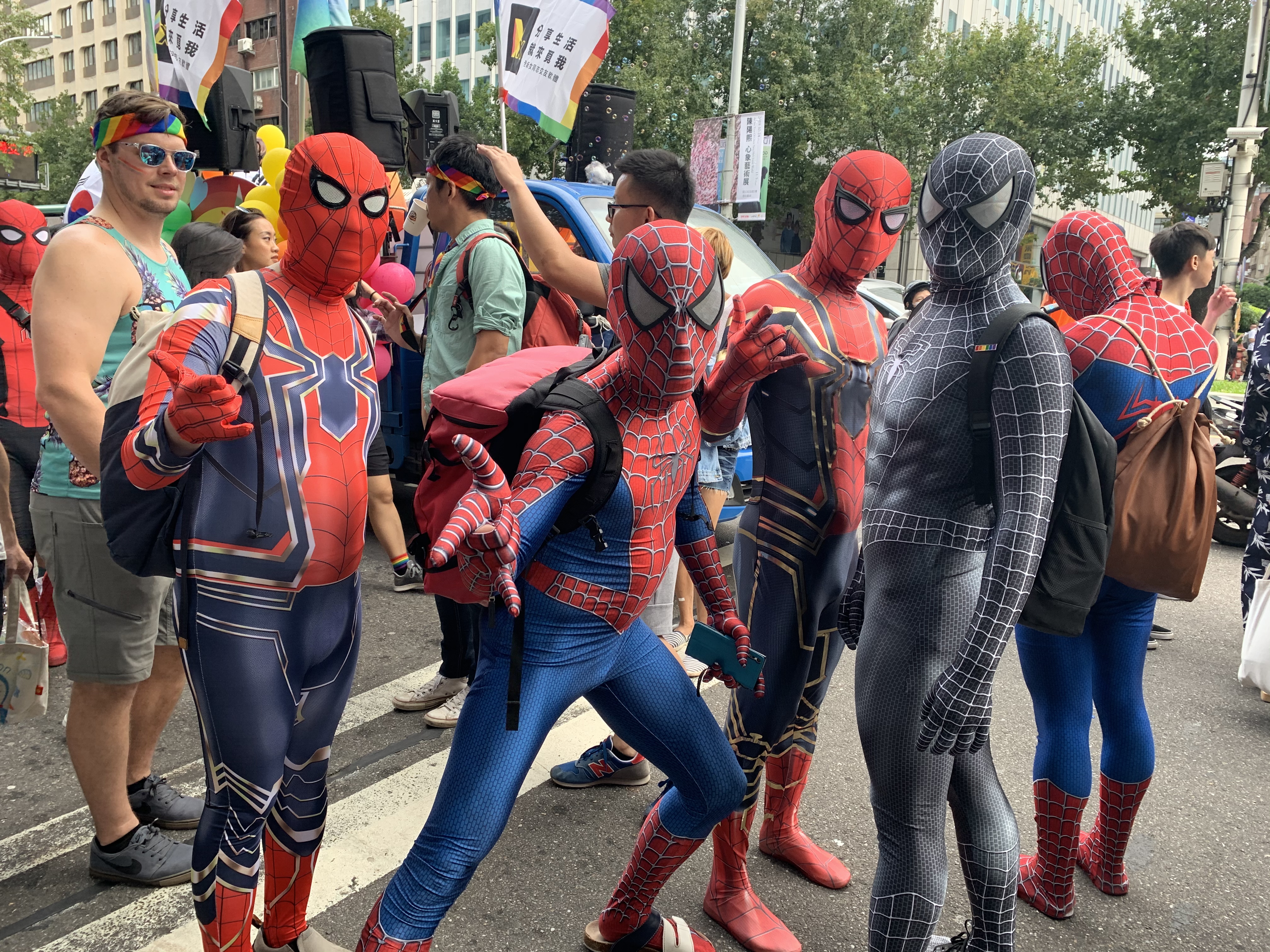
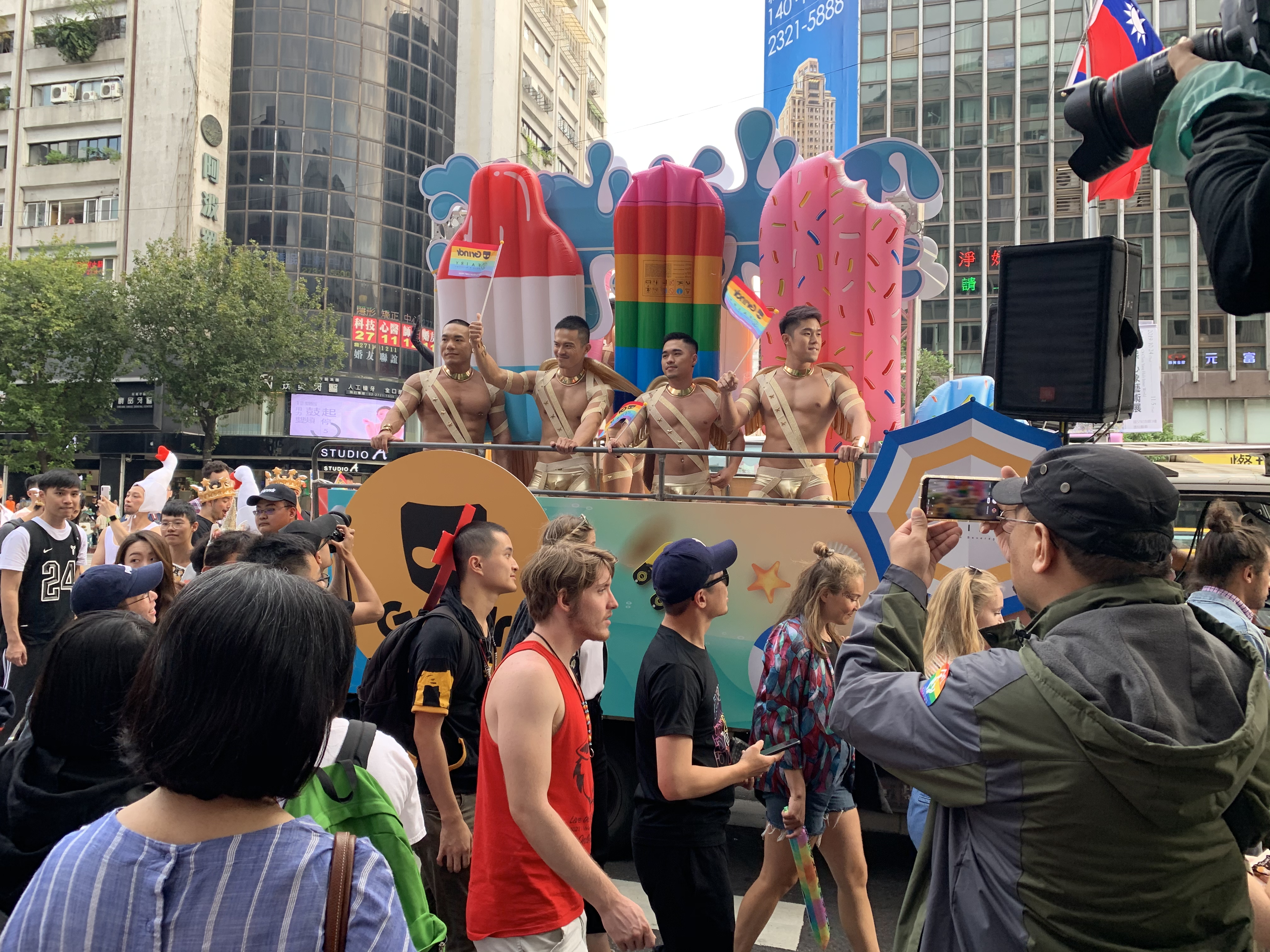
To end this on a fun note, I did enjoy the preponderance of music this year.
In previous years each parade route might have had one or two trucks playing music for participants to dance to - otherwise you sort of walked and talked with your friends but there was nothing to keep your energy up. This year, everyone from the usual drag queens to the Korean truck (who were not the only Korean participants) blasting K-Pop to LesPark (which always has great music) and more kept the mood upbeat.
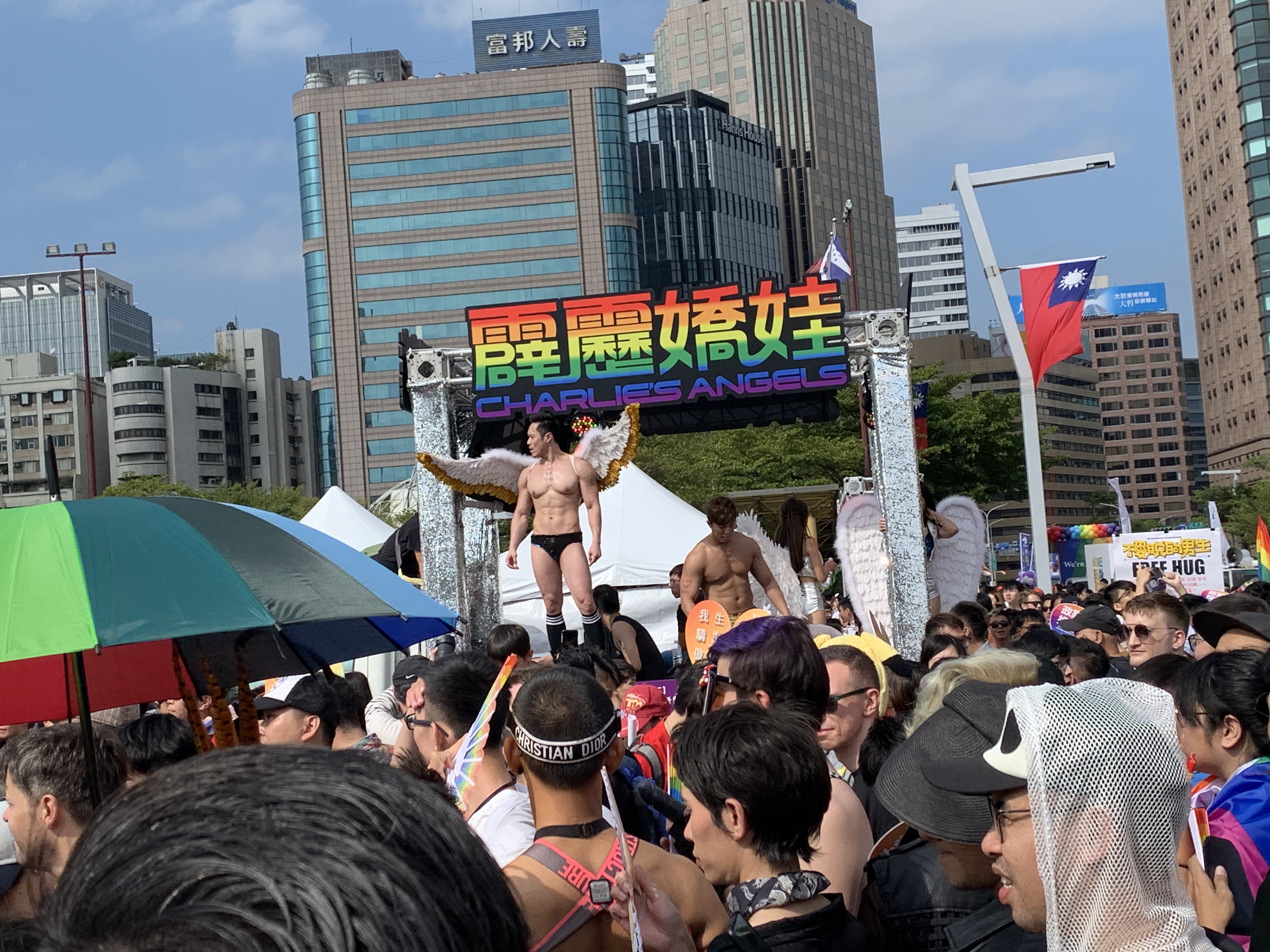
And, of course, the costumes - with Taipei Pride being so close to Halloween, it'd make sense that it turns into something of a costume party (though I suppose most Pride parades do - I've only ever attended in Taipei though.) Not to get too gossip-rag about it but let me tell you: in 2019, dog daddies and Pikachu are super hot, and the Joker is super not (as a friend I ran into put it, the new Joker is kind of an Angry Straight White Guy thing so that makes sense). Disney princesses, ruling like a queen or goddess, video game and cartoon characters, BDSM, Hong Kong solidarity, Free Hugs and angel wings are in. Showing too much, however, seems to be out.
Plan your Halloween party attire accordingly.
